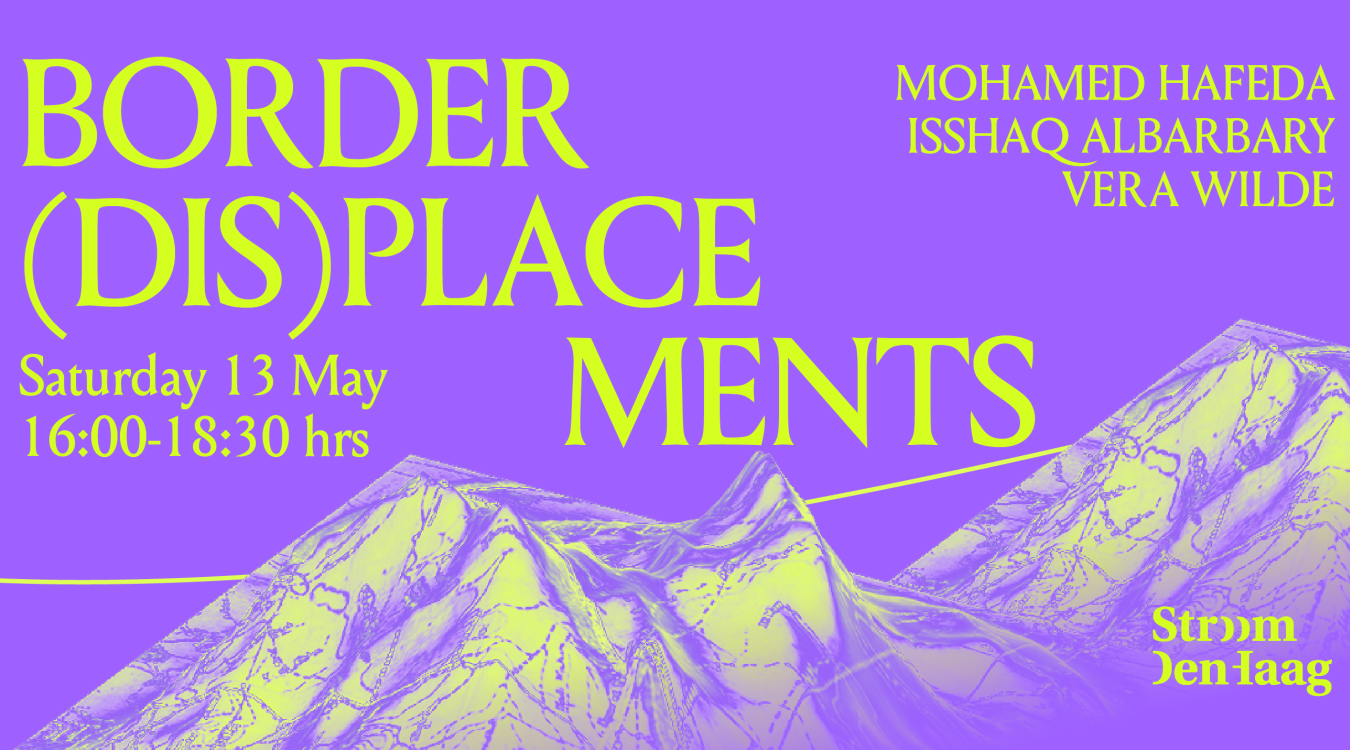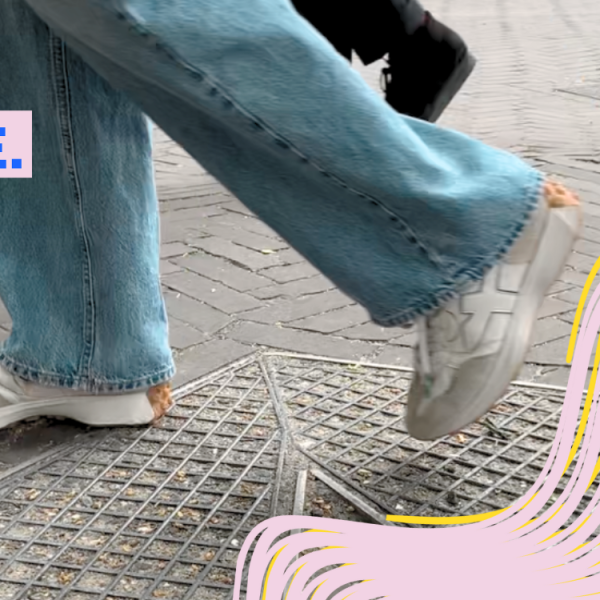Border (Dis)placements
- Date: 13 May
- label.tijd 16:00 - 18:30
- Location: Stroom

On a map, a border is often indicated by a bold or jagged line. In photographs, we are used to seeing the border as a concrete wall, a fence of barbed wire or even a tent camp. But in the current experience of those who cross the border, these material features of borders are no longer primarily visual. Instead, they appear as algorithmic interrogations, indications hidden in layers of plastic, or as psychogeographic pathways; wandering through a city while avoiding checkpoints.
Borders have become displaced entities, fragmented in time and space. They often barely overlap with their designation on a map. The European Union border, for example, functions as much through police presence on the Mediterranean as through bureaucratic decisions in Brussels.
The Hague also plays a role in monitoring borders: at the national level, it houses the IND (Immigration and Naturalization Service), the decision-making body for all migration applications in the Netherlands. And at the international level, it houses the headquarters of Europol, the agency charged with monitoring forms of migration considered illegal.
Not only does the city contain the bureaucratic framework and workers needed to enforce the EU's border regime, The Hague also houses considerable infrastructure, such as satellite and surveillance equipment to monitor the borders.
The seminar Border (Dis)placements at Stroom examines the materiality of border regimes, both inside and outside the EU. The following three contributions address the affective and psychogeographical dimensions of borders, displacement and fragmentation across the globe:
Mohamed Hafeda's film Sewing Borders reveals how borders are experienced and does so in the context of displacement in Beirut;
Isshaq Albarbary's performance lecture explores the materiality of his Dutch ID card and addresses the bureaucracy made visible by the fact that his country of birth Palestine is not allowed to be mentioned ("XXX");
Vera Wilde's lecture examines the role of lie detection in monitoring the EU border, using the iBorderCTRL algorithm.
This event is part of the exhibition Positions: Elsewheres (on view through July 2), which presents work by artists from The Hague who engage with fragmented places, landscapes and territories outside the exhibition space.
Entrance: free
Stroom
Hogewal 1-9
2514 HA Den Haag Sign Up



